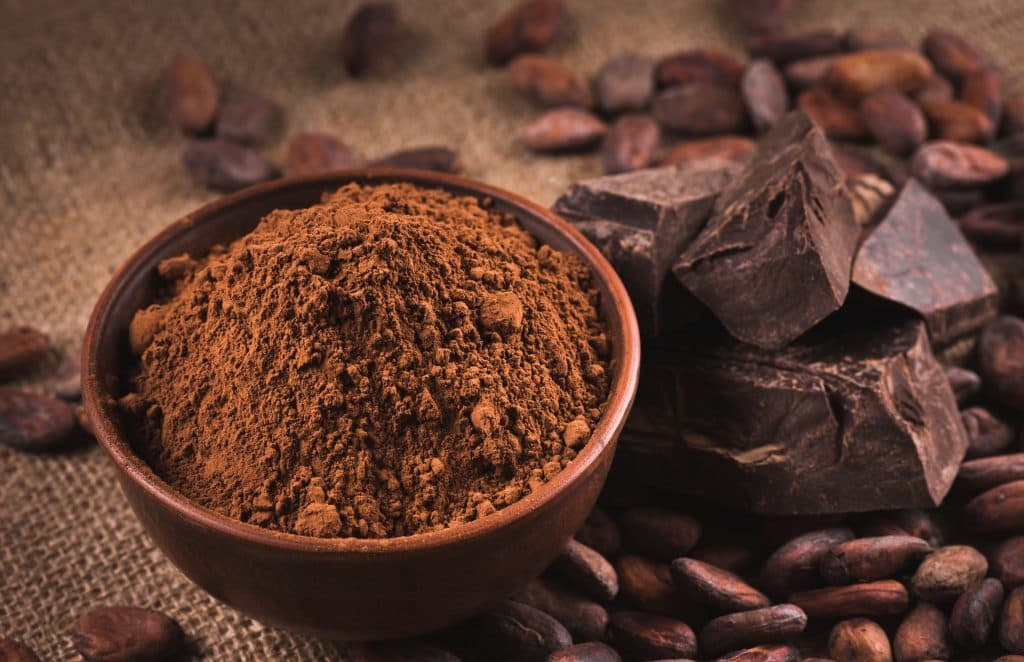The health benefits of chocolate
There is nothing quite like chocolate to titillate the senses, but what’s more, there are some health benefits of chocolate too!
When it comes to the hedonistic appeal of chocolate, the taste, texture, aroma and packaging are hard to beat. Australians eat an average of 5-6 kg of chocolate per person every year. Not surprisingly, Australia’s chocolate industry is worth $2.5 billion each year.
We eat too much of everything, but what makes chocolate so special that we are loathe to give it up?
For millennia, products made from cocoa have been considered an exclusive item. The Incas thought it was their gods’ drink of choice. In fact, the scientific name of the cocoa tree, Theobroma cacao, comes from the Greek words theo (god) and broma (drink). (The Gods drink cocoa?)
But more than simply an indulgent attempt to rise above your station, or the naughty thrill of doing something bad, experts widely consider cocoa to have health-enhancing properties.
Chocolate and disease prevention
A number of randomized clinical trials have studied dark chocolate. The good news is that when you eat it, there seems to be a modest but significant benefit on blood pressure and blood vessels.
For example, a regular dose of dark chocolate can reduce your systolic blood pressure by about 4-5 mmHg. This would equate, on average, to an 8-10% reduction in your risk of heart attack and stroke.
Experts also suggest chocolate can lower cholesterol. Cocoa butter, a fat derived from cocoa plants and found predominantly in dark chocolate, contains large amounts of monounsaturated fat. This kind of fat has some of the benefits of the Mediterranean diet, which includes olives and nuts and can lower blood pressure and cholesterol levels.
The saturated animal fat and palm oil added to modern chocolates, however, easily offset this benefit on lipid levels.
How could chocolate keep us healthy?
Cocoa products, such as dark chocolate and cocoa beverages, have high content of plant-derived flavanols (about 6-8% polyphenols by dry weight) that contributes to their unique flavor and aroma. Many of these compounds are biologically active and exhibit antioxidant and anti-inflammatory qualities. Chocolate’s flavonoids also have an effect on mood and wellbeing.
Such findings, along with the historical mystique of chocolate, have launched any number of scientific studies in search of the health benefits of chocolate.
Of course, cocoa is not the only source of plant-derived flavonoids. In fact, much richer sources may be available in tea, grape juice, wine, various berries and gingko.
Moreover, conventional chocolate manufacturing processing from fresh cocoa seeds to the final product markedly decreases the concentration of flavanols. Cocoa powder and dark chocolate have the highest flavanoid content, and white chocolate has hardly any.
Unfortunately, many of the studies showing how wonderful cocoa-derived flavanoids are have used very large doses of these chemicals that regular chocolate eaters could never consume (at least without significant detriment to their waistlines). How much a little chocolate habit does for our health is therefore unclear.
There is a downside
On average, two out of three Australian women will put on a dress size (two centimeters) every five years.
On top of a diet of already eating too much, it’s not surprising that we feel a little worried about chocolate. In excess, it will induce weight gain, obesity, hypertension, diabetes, heart disease and an early demise.
There are also some addictive chemicals in chocolate, including caffeine and theobromine that induce dependence in much the same way that coffee does.
Part of the addiction is also psychological, with the expectation of feeling good (or not feeling bad anymore), driving the need for a fix. Chocolate is certainly our national comfort food and seems to be uniformly eaten by office workers to get them through their three o’clock slump.
It doesn’t feel like a downside, but eventually it looks like it.
Last reviewed 15/May/2017
Editor
Latest posts by Editor (see all)
- Oily fish and diabetes prevention - 04/06/20
- Manage the andropause - 11/12/17
- Testing testosterone levels - 07/12/17
